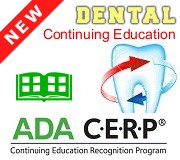The question is asked on a regular basis to us as implant representatives of when the companies are going to standardize their tooling. This is a fair and valid question. Most of the time the doctors feel that we are glad to have different tooling so we are able to make a sale. In actuality most of us would also like the tooling to be standardized so we can be more helpful to the doctors we work with.
Currently I carry a driver for all the major implant companies as a service to my doctors. There are many times that we are helping with a case and there is another brand implant in the patient’s mouth that we need to add into the restoration. By having the majority of the drivers I am able to help keep the hassle of calling multiple companies to a minimum. To this point I also feel that it is important to purchase a universal torque wrench. By doing this you will no longer need to purchase $800 prosthetic kits from each company you restore. You are able to purchase the drivers needed for the systems you work with for around $40 each. Just make sure the torque wrench takes the latch style drivers since all the implant companies offer the latch style.
In theory having a standardized set of tooling sounds great! In my opinion it will never happen. If we look at how many implant companies there are in the world it is overwhelming. So to get the majority of the companies to agree on having the same driver would be a big undertaking. As we all know every implant company has their own unique characteristics and with a major one being the abutment screw. The abutment screws will be different in length, thread count, torque specifications and most important the size of the screw head. Some of the implant companies use a small screw head diameter for a better esthetic result. This means a lower amount of torque the head of the screw can handle.
Other companies have a larger screw head with higher torque specification to make up for less mechanical stability and the larger load on their abutment screws. If you where to make a standard size driver this would mean finding a driver with a diameter that would not take away any more titanium from the screw head of the smaller abutment screws to prevent stripping .Then not too small for the larger abutment screws to prevent the driver from stripping or breaking when torquing to the higher specifications.
The best example I can give to why it will not happen is the car industry. Being that I am in Michigan I see it every day. Each automobile manufacturer has different parts than each other. Their parts are made of different materials, different sizes and weights. This means different size screws and bolts to hold the parts together. This is why mechanics need to have standard, metric, spline, six lobe, star and other style wrenches. They do this to make sure they can work on all model vehicles to keep the money in their shop. Plus the car companies who put a large amount of money into researching their product should not have to allow others to use their design.
The implant company I work for has a great design to their abutment screw driver. It grips the abutment screw not allowing it to fall off and it has a smaller head design then other manufactures allowing for more abutment material to support the crown. This leads to a higher esthetic result. Should we have to share our design with others? Should we have to go to a larger diameter screw head to accommodate a different driver and loose our esthetic benefit? The looser in this case would be the patient. Yes, it would make it more convenient for the doctor but when do we draw the line between convenience and results.
In conclusion, the near future does not show standardized tooling coming any time soon. Convenience would be nice but sometimes function needs to be considered first. There would have to be too much re-designing for the implant companies current implant designs. There are options out there such as purchasing a universal torque wrench to help keep costs down and simplify your tooling options.
Written by: Dr. Bob DeCelle
Thommen Medical
Michigan Territory Manager





 When will There be Standardized Implant Tooling?
When will There be Standardized Implant Tooling?



